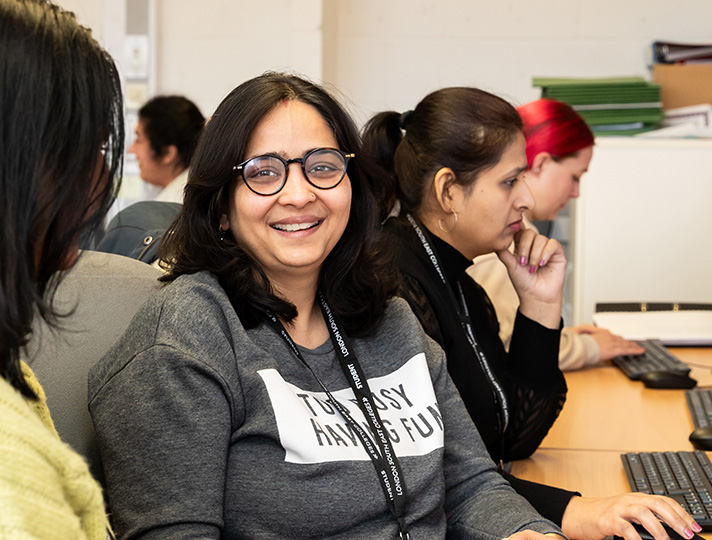-
Entry Requirements
You need: -Minimum of five GCSEs - grades A*-C, 9 - 4, including English and Maths -A minimum of 64 UCAS (Universities and Colleges Admissions Service) points -Pearson BTEC Level 3 National Extended Diploma – PPP -Pearson BTEC Level 3 National Extended Certificate
-Access to Higher Education
-T Level - P
-Applicants with BTEC ND/NC or degrees in other subjects will be considered -Mature applicants over 21 years of age with relevant industrial experience could be considered on a case-to-case basis. -
Assessment
odules will be assessed by a mixture of closed book examinations written assignments, which could be in form of reports or essays, laboratory experiments Some course will be assessed by means of presentation and written. The assessments have been designed to develop skills, knowledge and attributes in our students, each module has been mapped to the Greenwich Graduate Attributes (GGA), Knowledge, Intellectual Skills, Subject Practical Skills and Transferable Skills.
The assessment grade will be accumulated through an order of summative and formative assessments, this will enable constructive and developmental feedback to students on a regular basis.
Students must pass each module to get the overall FdEng Mechanical Engineering qualification at the end of the study programme
Feedback: You will receive feedback on formal assessment undertaken by coursework via Moodle. Feedback is intended to help you learn and you encouraged to discuss it with your lecturer. We aim provide you with feedback within 20 working days from final submission.
-
Progression
At the end, students can apply to University of Greenwich for one-year top-up in other to achieve BSc or BEng in any of the chosen discipline.
-
Apply Now
Apply now via UCAS.com -UCAS Code H306 -The university code for the University of Greenwich is G70 -For further information, please email HE@lsec.ac.uk
-
Module information
**Year 1
Design and Materials**
The module introduces the methods and practice of engineering design, allowing the student to become acquainted with the basic principles of design and the design process. This will include the important link between design and manufacture. Materials selection, an essential part of the design process, will be facilitated by an understanding of key materials properties, the basis for the selection of materials for a given application. Materials selection, an essential part of the design process, will be facilitated by an understanding of key materials properties, the basis for the selection of materials for a given application.
Engineering Professional Skills 1
The aim of this module is to provide all year-one engineering students with understanding through practice of the need for a high level of professional and ethical engineering conduct that is mindful of commercial, economic and social context.
Engineering Principles
The aims of this module are to provide students with the pre-requisite knowledge and understanding of basic of engineering principles and applications, prior to following their chosen discipline. The module also aims to provide students with the communication and analytical skills which are required to maximise the benefit from laboratory and project work undertaken throughout the year.
Technology Mathematics
The aims of this Module are to consolidate and extend the students background knowledge to enable students to appreciate the use of mathematics as an engineering tool. A student’s level of knowledge and competence will be reinforced by applying basic mathematical methods to solve mathematical and engineering problems.
Preparation for Work Based Learning
The module course will introduce the concept of work-based learning and how to identify, capture and present work based learning activity for credit at Higher Education level.
Year 2
Workplace Based Project
The project is a culmination of the foundation degree and represents learning and achievement at work. The report must: present a workplace project which has the required technical challenge appropriate with his/her programme of study; evidence the ability to apply knowledge and understanding gained across Modules previously studied on the programme to a challenging, industrially relevant project; evidence their ability to work on an individual basis, witH limited direct supervision; demonstrate the application of problem-solving skills and a reflective approach to developing solutions; to be aware of the Health and Safety regulations relevant to their working environment where appropriate; to be able to carry out a Risk Assessment in the relation to the environment and the prevalent working processes where appropriate; relate the work completed to macro-environmental factors which may have impacted the outcome and work itself, where appropriate.
Mathematics for Engineering Systems
This module aims to strengthen and extend students’ mathematical skills, to enable students to appreciate the use of mathematics as an engineering tool and to build up a students’ level of competence in applying mathematical methods to solve engineering problems.
**Computer Aided Design and Manufacturing
The overall aim of this Module is to introduce students to Computer Aided Design and Manufacturing concepts and their applications to geometry modelling based problems in the product lifecycle.
Thermo-fluid Applications 1
To help students develop insights, knowledge and skills necessary for a practising engineer to understand and apply thermodynamic and fluid models and concepts to thermal and fluid systems. The Module will introduce fundamental laws governing thermal systems as well as those governing fluid behaviour under static and dynamic conditions.
Materials 2
The module aims to impart an appreciation of the central place that materials occupy in engineering; after all, engineers make things, and they make them out of materials. An engineer needs to make good choices in his/her selection of materials. To emphasise this, the module will take an application driven and design approach through the examination of a range of materials selection case studies and challenges, such as selecting materials for the hot end of a gas-turbine engine and preventing failure of aerospace structures. However, it is intended that students also gain an understanding of the complexity of materials, the origin of their properties, to know which material properties are intrinsic and which can be manipulated through manufacturing, processing and heat treatment.
Product Design & Development
The module aims to provide students with fundamental backgrounds as well as practical and transferable skills that are required for engineering design and product development. Students will gain an extensive knowledge of design and product development processes, methods and technologies. State of the art topics about engineering design and product development (DPD) are introduced, including (1) Advanced technologies for DPD: CAD/CAM/CNC, Computer Aided Engineering (CAE), 3D Visualisation and Animations, Rapid Prototyping & Manufacturing (RP&M), and Reverse Engineering (RE), and (2) Challenges in today's economy and business: Product safety and liability, Intellectual property rights and innovations in DPD. The Module also allows students to reinforce and integrate previously acquired and related knowledge, understanding and skills in Engineering, Design and Materials, Manufacturing, Engineering Professional Skills, and Engineering Management, by practicing them in the problem-based learning case studies and group projects. Lab sections include the topics such as CAD, RE, RP&M, and CNC machining which are fundamental and important for students to enhance technical backgrounds and skills in DPD.
-
Cost and Loans
You can apply for a student loan for this course. Although we aim to minimise any additional costs to students over and above the course tuition fee, there will be some additional costs which students are expected to meet these include:
Safety equipment Engineering students will be required to purchase safety boots (approx. £25) and the college will provide protective headwear in addition to lab coats and non-prescription safety glasses. You'll be expected to pay for prescription safety glasses (approx. £90+) if you choose to purchase them.
Resources Course texts and other study resources are available from the Drill Hall Library and LSEC Bromley LRC. You may wish to purchase your own copies.
Library Fees and Fines If you fail to return loaned items within the required time you will be responsible for the cost of any fees or fines applicable
Printing and photocopying You also receive an allowance for printing costs, which you can top up if required.
Graduation ceremonies It is free for you to attend the ceremony itself. Guest tickets and robe hire / photography are additional costs payable by you.
Field trips The cost of field trips is activity dependant. Some are free, while others may require a contribution. You are not obliged to pay for field trips in order to complete your course.
Related Courses
Events
-
Nov 22
Apprenticeship Information Event9AM-2PM
Orpington Campus
-
Feb 25
Greenwich Open Event5PM-7PM
Greenwich Campus
-
Feb 27
Bexley Open Event5PM-7PM
Bexley Campus
-
Feb 27
Holly Hill Open Event5PM-7PM
Holly Hill Construction Skills Campus
-
Mar 01
Bromley Open Event10AM-1PM
Bromley Campus
-
Mar 01
Orpington Open Event10AM-1PM
Orpington Campus
Where can it lead?
Find out more about the jobs available once you have successfully completed a course in this area.
Our Courses
Take a look at our wide range of affordable employment-focused higher education courses.
Fees and funding
We want to help you get the very best out of your studies with us and understand that financial issues can be a concern.
Why study with us
We blend academic and vocational learning so you will gain the skills employers want and the confidence you need to start or advance in your chosen career.





